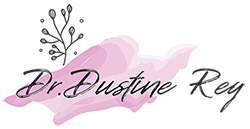Educational Research
What does education in the 21st century look like? What do our future leaders, entrepreneurs, innovators, authors, and artists need?
These pages are dedicated to answering those questions. As you examine the content, you can watch videos of project-based learning, STEM lessons in action, and presentations by experts in education. Additionally, you may click on the provided research and links to explore various websites and articles. This valuable information will assist you in generating your own conclusions to the above questions.
The last fifteen years of educational research has contributed to the expanding knowledge of young learners cognitive capacities, emotional needs, creativity, various intelligence’s, critical thinking skills, and technological expression. The result of standards based test taking and teaching the memorization of facts left many parents, educators, and researchers wondering if students were actually prepared for the world and employment. Did students learn the skills to effectively work with others? Did they acquire a sense of well-being? Can they exercise the ability to make good decisions based on critical thinking? Are they competent and innovative in technology, science and math?
When the imagination is aligned with significant learning, the creative outcomes are extraordinary.
Consequently, many preschools and K-12 classrooms have changed their shape and philosophy over the past decade. A set of core competencies have been identified to contribute to ones ability to be an active life-long learner and master the skills necessary for navigating life in the 21st century. (These competencies are not to be confused with Common Core Standards). The last fifteen years of educational research has contributed to the expanding knowledge of young learners cognitive capacities, emotional needs, creativity, various intelligence’s, critical thinking skills, and technological expression. The result of standards based test taking and teaching the memorization of facts left many parents, educators, and researchers wondering if students were actually prepared for the world and employment. Did students learn the skills to effectively work with others? Did they acquire a sense of well-being? Can they exercise the ability to make good decisions based on critical thinking? Are they competent and innovative in technology, science and math?
These competencies include:
Critical thinking and problem solving
Collaboration and leadership in groups
Curiosity and imagination
Adaptability and resiliency
Personal initiative and entrepreneurship
Effective oral and written expression
Knowing how and where to access data
Looking For More Information? Click the links below.



